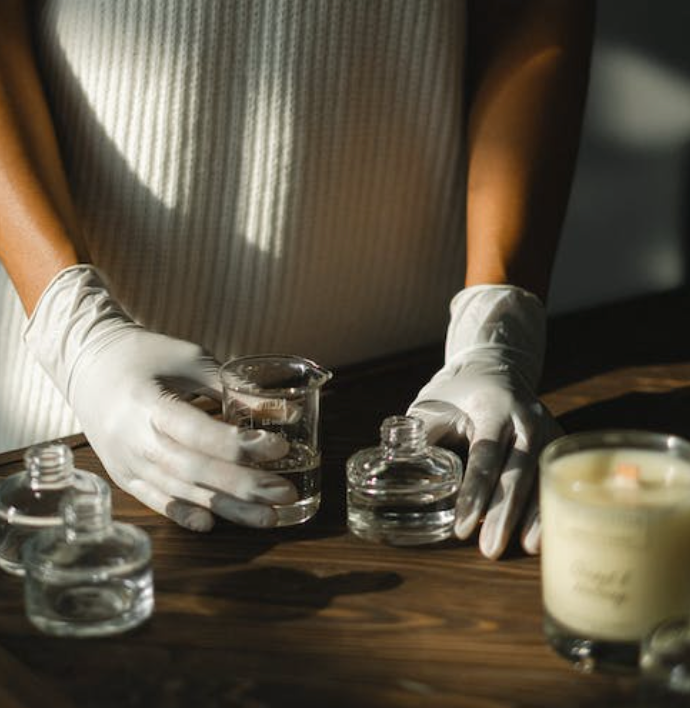At Fragrance Familia, a number of our perfume enthusiasts in NYC, Los Angeles, Chicago, Boston, and Atlanta have asked us if we had any perfume-making tips! While we don't make fragrances in-house (yet!), we do have some recommendations if you're looking to get started.
Basic Perfume Making Guide
1. Gather your supplies:
- Perfume base: This is the "solvent" that carries the fragrance. You can use high-proof alcohol (vodka is popular), witch hazel, or a pre-made perfume base.
- Carrier oil (optional): This helps the fragrance stay on your skin longer. Jojoba oil, sweet almond oil, and fractionated coconut oil are good choices.
- Fragrance oils: These are the concentrated scents you'll use to create your perfume. Start with a few basic notes like lavender, citrus, or vanilla.
- Bottles and droppers: Choose glass bottles with atomizer sprayers for easy application.
2. Understand the notes:
- Top notes: The first scents you smell, they fade quickly but set the initial impression. Examples: citrus, mint, green tea.
- Middle notes: The heart of the perfume, they emerge after the top notes fade and last longer. Examples: lavender, rosemary, geranium.
- Base notes: The foundation of the fragrance, they last the longest and provide depth and warmth. Examples: sandalwood, musk, patchouli.
3. Create your blend:
- Start with small amounts!
- Mix your chosen base and carrier oil (if using) in a clean container.
- Add your fragrance oils drop by drop, starting with the base notes and working your way up to the top notes.
- Swirl gently after each addition and smell to see if you like the combination.
- Don't be afraid to experiment!
4. Macerate and mature:
- Once you're happy with your blend, seal the bottle tightly and store it in a cool, dark place for at least 2 weeks. This allows the scents to meld and mature.
- Give it a shake every few days to help the ingredients mix.
5. Test and enjoy!
- After maceration, try your perfume on your skin and see how it develops throughout the day.
- You can adjust the blend if needed.
- Label your creation and share it with friends!
Remember:
- Start simple and gradually build your skills.
- Use high-quality ingredients for best results.
- Patch test any new fragrance before applying it liberally.
- Have fun and be creative!
This is just a starting point for your DIY perfume journey. As you gain experience, you can explore more complex techniques, different bases and carrier oils, and even create solid perfumes or scented lotions. Be sure to check out our fragrance collection if you want to compare your creation with some designer perfumes already available!
Have you ever tried creating your own beautiful fragrance concoction? Please share in the comments!


